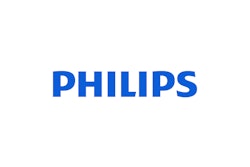
Web services giant Amazon has launched a new data archiving service for healthcare providers, called HealthLake. The service is designed to help providers organize and store data from multiple clinical silos into a single "data lake."
Healthcare enterprises are creating massive volumes of patient data, but such data is complex and is notorious for being stored in silos that are difficult to access outside of their home departments. Clinical data also tend to be incomplete, incompatible, and stored in on-premises systems that are located across multiple locations.
Offered by Amazon's Amazon Web Services (AWS) division, HealthLake is designed to make it easier for healthcare providers to query, perform analytics, and run machine learning on their data. The service "normalizes" data by identifying each piece of clinical information and tagging and indexing it in a timeline view with standardized labels so it can more easily be searched.
Data in HealthLake are formatted using the Fast Healthcare Interoperability Resources (FHIR) industry standard, which Amazon believes will facilitate a complete view of the health of individual patients and entire populations.
By aggregating clinical data into the FHIR format, providers will be taking a step toward standardizing structured data. Still, the majority of health data remains unstructured and still needs to be tagged, indexed, and structured in chronological order to make all of the data understandable and able to query -- which is where HealthLake comes in.
After data is ingested, HealthLake uses machine learning that's been trained to understand medical terminology to identify and tag each piece of clinical information. It also indexes events into a timeline view and enriches data with standardized labels, such as whether data applies to medications, conditions, diagnoses, or procedures, so all the information can be easily searched.
Amazon said it has been working with multiple partners on HealthLake, including 3M, Anthem, AstraZeneca, Bristol Myers Squibb, Cerner, the Fred Hutchinson Cancer Research Center, GE Healthcare, Infor, Pfizer, and Philips.



















